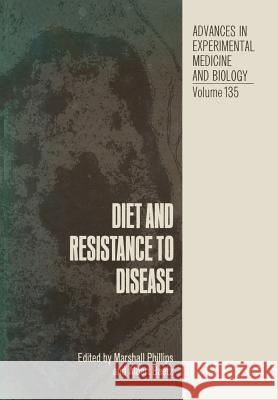Diet and Resistance to Disease » książka
Diet and Resistance to Disease
ISBN-13: 9781461592020 / Angielski / Miękka / 2012 / 220 str.
Intuitively, we realize that animals that are well fed and well cared for are healthier than animals that are not well fed or well cared for. Although nutritionists have long been concerned with minimum nutrient requirements for maximal growth rate and maintenance, it has been only recently that investiagators have begun to look at the nutritional requirements that provide optimal health. The increasingly sophisticated methods of immunology have allowed investigators to define indicators of resistance to disease such as cell mediated immunity, lymphocyte functions, and macrophage functions. When these immunological tools are combined with the classical methods of nutrition research it is possible to determine how dietary constituents affect each of these cellular immune systems, and to gain an overall understanding of how these systems affect resistance to disease. This symposium was organized to bring together people working on various nutritional problems that have an interrelationship to resistance to disease, so that this rapidly expanding area of nutritional immunology could be reviewed. We felt that the Agricultural and Food Division of the American Chemical Society was an ideal forum to present this material. In relating nutrition and infection, two areas of importan e must be considered: (1) public health, i. e., the prevention and treatment of human disease and metabolic disorders; and (2) live stock and poultry production. The production of meat, fibre, and animal materials continues to be a more intensive operation in the agricultural system of this country and the world."











